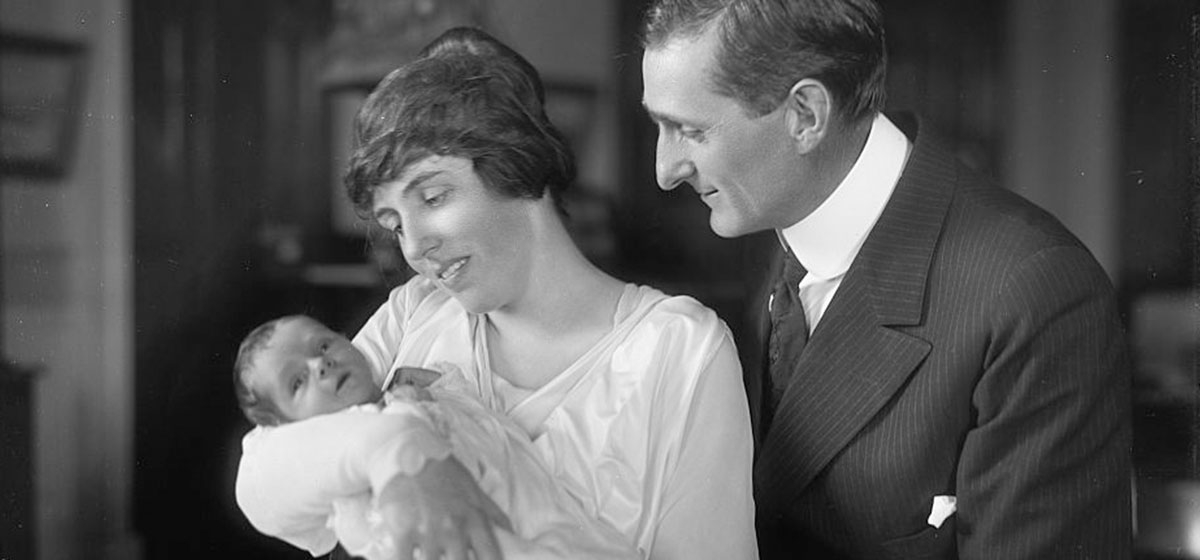A Pampered Generation

The typical trust fund baby is well-known to all of us: a life devoted to spending down the family’s capital on themselves, not working, having difficulty maintaining relationships, living empty lives. The fear that people will be ruined by money is so pervasive that, following the French Revolution, trusts were abolished in virtually all civil law jurisdictions. However, as I’ve tried to show, it’s almost never money alone that ruins people. Indeed, the trust has now made a comeback in the civil law: “la fiducie,” a civil law version of the common law trust, was authorized by legislation in France in 2007.
But as I mentioned last week, the very understanding of the trust fund baby seems to me to be undergoing a radical change, and one that seems, at first glance, to describe the very opposite of the traditional understanding. To grasp this phenomenon, we have to revisit the extraordinary evolution in American childrearing practices that has occurred over the past few generations, a veritable revolution that began in 1946, the relevance of which will soon become clear.
From the beginning of American history right down through The Greatest Generation, children were viewed much differently than they are today. They were “seen but not heard,” were put to work at a tender age, were physically punished when they misbehaved. All kids were bullied and most kids were themselves at least part-time bullies.
Physical violence, at least among boys, was almost encouraged, and every male gave and received a great many beatings over the course of his childhood and adolescence. Far from being at the very center of the family’s attention, children existed well off-stage, and there they remained until they became self-supporting.
It wasn’t that parents didn’t love their kids, it was that parents knew those kids would be entering a harsh world, a world in which nothing would be handed to them and where survival itself depended on their being tough, hardy and disciplined. Most Americans were poor and keeping the wolf from the door was a fulltime occupation.
Then, in 1946, Benjamin Spock published “Baby and Child Care,” as revolutionary a work as has ever been published in the modern era. For decades the book was outsold only by the Bible.
Far from advocating a harsh, uncompromising approach to childrearing, Spock promoted parenting that was flexible, kind, openly affectionate. Rather than preparing children to tough it out in a harsh world, Spock wished to prepare children to flourish as individuals, to become more complete human beings.
Profound as the changes Spock advocated were, they wouldn’t have gained much traction if post-war America had been as grim and challenging as Depression America. But America prospered mightily in the 1950s and 1960s, and people who had been deprived children of the Depression suddenly found themselves living a life characterized by an affluence that would have astonished their parents and grandparents. And that affluence was nothing compared to the prosperity achieved by their children, the Baby Boomers.
Post-war America was a kinder, gentler society, and parents wished to prepare their children to flourish in that far better world. Childrearing beliefs that had characterized American society for many generations suddenly became anathema. Who, today, would defend bullying, physical violence, corporal punishment, and similar practices?
The problem with American children wasn’t anything Spock advocated, but there was definitely a problem. Every decade that went by we placed our children more and more at the center of family life. We lavished massive amounts of time, attention, money and emotion on our kids, indulging their every whim and protecting them at all costs from any blows to their delicate psyches. Bullying, physical violence, personal failure? Banished!
We weren’t preparing kids for a harsh, unforgiving world, and, as the decades rolled by, we weren’t preparing them for a kindler, gentler world. We were preparing them for a world in which they would always be at the very center of attention. This was an imaginary world in which gratification would be instant and certain, a world in which nothing of moment would ever be demanded of them, a world in which nothing bad could ever happen, a world in which even their opinions and beliefs, however thinly based, would never be challenged.
From birth through nursery school and day care, through lower, middle and upper school, and right through college and graduate school, children and young adults have for 25 years lived in a weird kind of fantasy world designed to prepare them for life in a society that is perfect in every way. Although they are young, inexperienced, and broadly ignorant, their whims and opinions are indulged to a degree that Nobel Prize winners can only dream about.
No doubt my description of childrearing in contemporary America seems like a caricature, but it’s not as far from the mark as we might wish. Consider, just as a random example—surveys showing that roughly half of all college students think it is acceptable to shout down a speaker whose opinions they disagree with. Or that nearly one-quarter believe it is acceptable to use violence to rout a speaker with whom they disagree. Or consider infantilizing ideas like safe spaces, trigger warnings, microaggressions, and so on.
Rather remarkably, once young adults leave the university campus, they quickly discover that the fantasy world they’ve been promised doesn’t exist. It may take them a few years to decompress and reeducate themselves, but they mostly manage to do it. (At that point, alas, they follow our example by raising their own children to flourish in the very fantasy world they’ve just discovered to be a chimera.)
But suppose the young adult isn’t a normal person, but a very wealthy person, somebody who, if they’d grown up a few generations ago, would have been a traditional trust fund baby? What becomes of a child who is raised in an indulged fantasy world, but who is also emotionally bruised by absent G1 parents or stunted G2 parents? We’ll take a look at this complex subject next week.
Next up: The Talk, Part V





